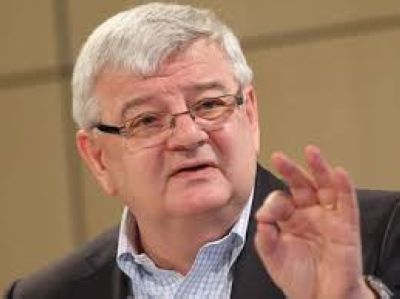At stake in the United Kingdom’s upcoming referendum on whether to remain a member of the European Union is the nature of the EU itself.
The UK wants a different kind of Europe than the one that the EU currently represents. Its preference is a Europe that essentially consists solely of a common market.
Even though Britain has long been able to opt out of the euro and much else (and thus is not forced in any way to participate in the process of deepening Europe’s political union), this is the ideological essence of the controversy.
It is a question that transcends the UK’s “Brexit” debate.
The growing strength of Euro-sceptic forces in many EU member states has raised the same issue on the continent, where many believe that the goal of a political union might overburden member states’ citizens and should be abandoned.
Like the British, many continental Europeans are asking whether transnational regulation by Brussels-based institutions and a political union are actually necessary.
Wouldn’t a loose association of sovereign nation-states, sharing the hard economic core of a continental common market — the British model — be enough?
Why bother with all that complicated integration involving the Schengen Agreement, a monetary union, and EU regulations, which in the end do not work properly and only weaken the member states’ global competitiveness?
Looking at European post-war history, it becomes clear that this debate has been with us almost from the very beginning.
The UK’s focus in the 1950s and 1960s was still mainly on the Commonwealth.
The European integration process — aimed at overcoming Franco-German enmity and reconciling West Germany’s industrial potential with European stability (and thus, under the US and NATO security umbrella, excluding the recurrence of war in Europe) — was marginal to its concerns.
After the Treaty of Rome in 1957 established the European Economic Community (EEC), the European Free Trade Association was established under British leadership a few years later.
EFTA’s aims were a straightforward customs union and a common market, and it was designed from the outset to compete with the EEC, particularly in northern Europe and among the neutral countries.
But it never caught on.
The reason EFTA failed to take hold is instructive: It was based only on economic interests and pursued no further idea.
EFTA had no soul, and that absence rendered it unable to compete with the incipient EU.
Of course, economic interests have been paramount in sustaining the EU’s progress; but the idea of uniting Europe clearly transcended mere economic unification.
It was and still is about overcoming European fragmentation via an integration process beginning with the economy and ending in political integration.
Winston Churchill knew that, as can be seen in his 1946 Zurich speech — well worth reading today — in which he called for a “United States of Europe”.
The EU is Europe’s main historical project. It has attempted, so far successfully, to learn from centuries of seemingly unending wars, by building a new pan-European system of states that is no longer based on a balance of power alone, but also on overcoming national rivalries by institutionalising common interests and shared values.
The EU has achieved great things, and this should not be forgotten amid its current crises.
The British error is to assume that one goal, a common market for Europe, can be had without the other, greater political integration, over the long term.
In order to function, a common market requires a substantial delegation of sovereignty and extensive European regulation.
In fact, the EU can ignore neither the nation-states nor the common institutions and policies without putting itself at risk. Both are its cornerstones.
The EU was characterised by this duality from the very beginning: a confederation with strong integrated federal elements and institutions.
Whoever questions this duality calls the entire system into question, all the more so given that the EU’s current status quo is anything but conducive to enduring stability.
The EU will achieve that only when it has taken the critical step towards a genuine federation.
This is why the majority of EU member states must never abandon the aim of an “ever closer union”.
The UK doesn’t share this aim, and it doesn’t have to share it. But the future of the EU hinges on pursuing it. Everything else is a question of pragmatic compromises, for which a good deal of leeway exists.
The writer, Germany’s foreign minister and vice chancellor from 1998 to 2005, was a leader of the German Green Party for almost 20 years. ©Project Syndicate, 2016.
www.project-syndicate.org
